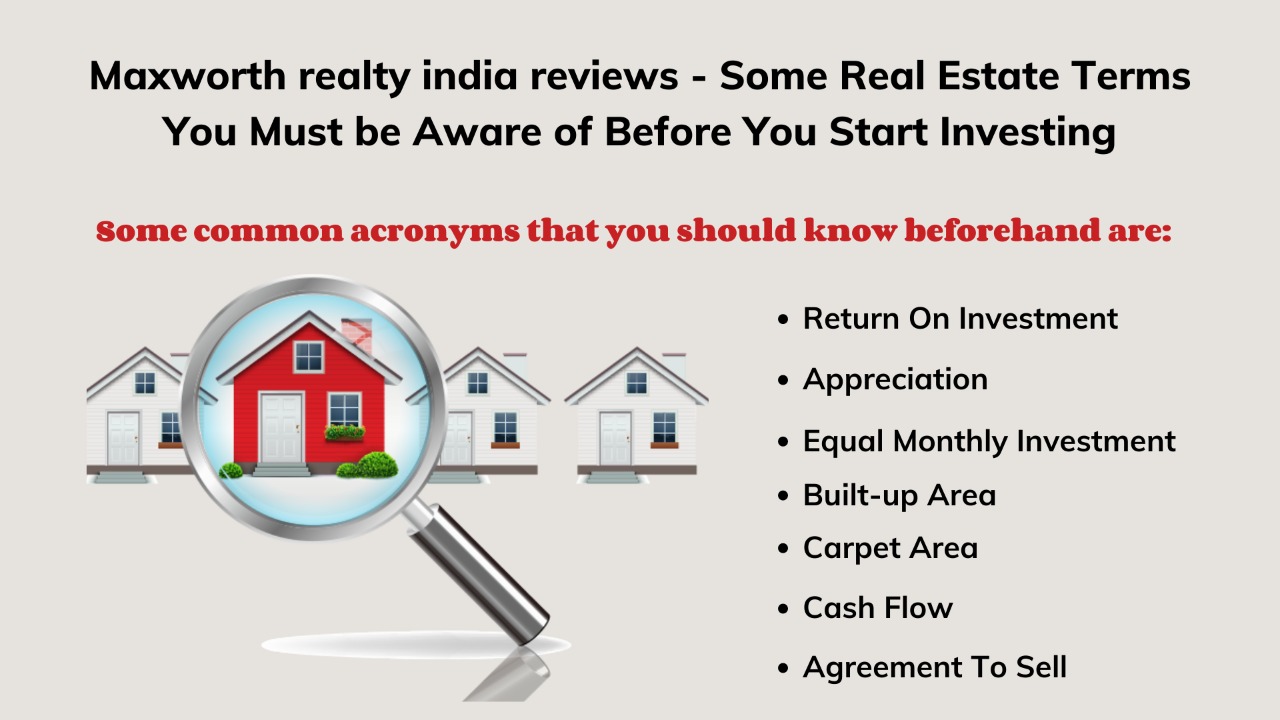Are you finding it difficult to understand the terminologies of real estate? Are you a novice in the field of investing? If yes, then don’t worry, we have your back. Although investing in real estate doesn’t require any specific knowledge, there are few jargonthat are used in this industry. Not knowing about these jargonmay even create trouble for you.You must have heard your realtor using terms like EMI, Appreciation, ROI, etc. very often. Knowing and understanding these acronyms used by your real estate marketers will make things quite easy for you. It doesn’t matter whether you are planning to start your investment in real estate or focusing on diversifying your investment portfolio, learning these jargons will help you in making the right and prompt decision. After going through this article, you will be able to execute your investments without any further duo.
Well, as you are a newbie, it’s not feasible to learn all the terms in one go. So, we will only be covering a few most commonly used jargonto make you familiar with their use and their significance.
Some common acronyms that you should know beforehand are:
- ROI- It is an abbreviation used for Return On Investment. In simple terms, ROI is the profit that you earn on your investment. Higher ROI means higher profit from your investment. Return on investment is calculated by dividing the net profit by the total cost of investment. ROI helps the investor in knowing whether his investment will be profitable for him or not.
- Appreciation- The next most commonly used term in the real estate industry is appreciation. If a property gets appreciated, it means the value of the property has increased over a period of time. There are many factors that contribute in increasing the value of the property such as highly favourable location, inflation, any commercial and infrastructural developmental projects by government near the property, high demand of the party, etc. Sometimes properties that offer a good view of nature, sea, etc. Also lead to price appreciation of the property.
- EMI- Equal Monthly Instalmentis the amount that a person who has taken any loan needs to pay to the lender of the money. Buyers usually take EMI for buying any property from banks and financial institutions. EMI is calculated according to the loan amount taken, age of the borrower, monthly income, credit score, and tenure of the loan. Potential buyers usually find it better to take a home loan and then make the payment in the form of EMIs.
- Built-up Area- It refers to entire floor area including carpet area, thickness of the walls, and balcony area of the house or apartment. In India, only30% of the built-up area is used for building balcony spaces and inner walls of the home. It is the actual area that the home buyer gets.
- Carpet Area- It is the net useable area of the apartment that is available to the buyer, excludingthe outer and inner thickness of the walls as defined by the Real Estate Regulatory Authority. Carpet Area is smaller than the built-up area.
- Cash Flow- Cash Flow refers to the inflow of cash that you get from the property after deducting all the operating costs. It can be summarised as the difference between the inflow and outflow of cash from your assets. When your expenses exceed your income, it results in negative cash flow and when your income exceeds the expenses, it results in positive cash flow. A positive cash flow is considered a profitable situation for the Investors. So, make that you choose a property that will help you in maintaining a positive cash flow.
- ATS- The next term used in the real estate industry is Agreement To Sell. ATS is the agreement made between the buyer and the seller that contains all the details regarding the purchase of the property, such as price and other terms and conditions of the agreement. It works as a basic document for drafting the sale deed.
Maxworth Realty India Reviews is quite fascinating about their services. They are one of the best realtor companies in Bangalore. So, from next time onwards, if you have any trouble with your real estate investment, you know where to go.

